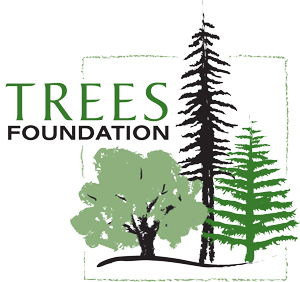Living With Fire
A New Hope: The Northern Mendocino Ecosystem Recovery Alliance
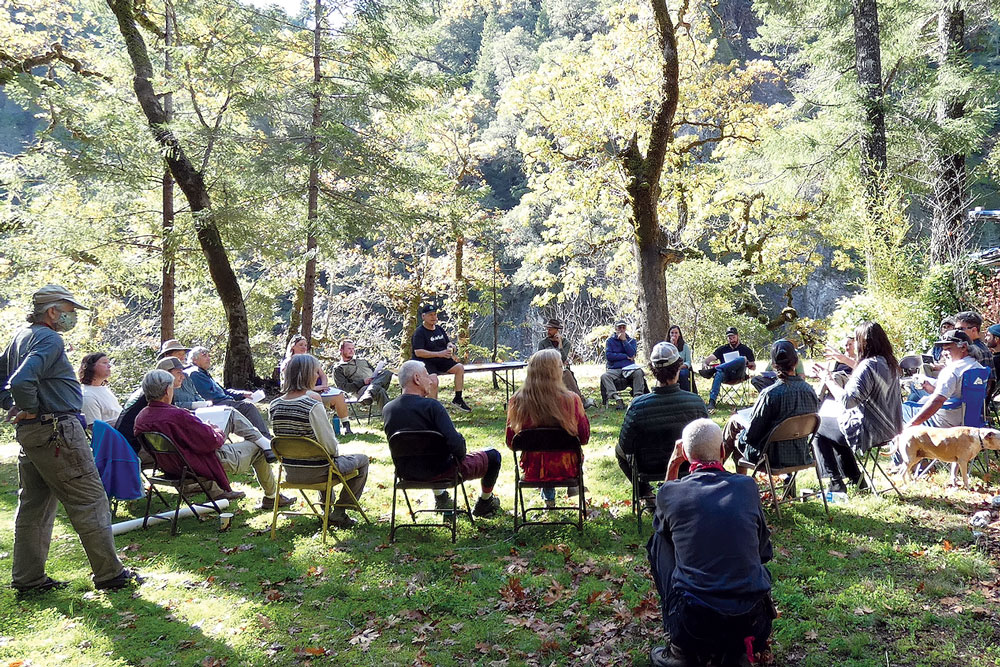
Trees Foundation is thrilled to welcome Northern Mendocino Ecosystem Recovery Alliance (NM-ERA) into our Fiscal Sponsorship umbrella. Fiscal Sponsorship is one of the primary ways that Trees Foundation supports the North Coast grassroots environmental community. It allows groups to move swiftly forward in accomplishing their objectives, while we handle the 501(c)3 bookkeeping and financial reporting required to accept tax-deductible donations and grant funding.
By Cheyenne Clarke, Northern Mendocino Ecosystem Recovery Alliance
We need action on forest health that will alter wide areas of the landscape—the work will involve acts of creation not destruction. Following the guidance of Indigenous elders and the ideal of poet Gary Snyder’s Real Work, a new organization has formed to help restore the forests and grasslands of our region: the Northern Mendocino Ecosystem Recovery Alliance (NM-ERA). We use the word ”recovery” because we want to bring the terrestrial and aquatic ecosystems back to health. We want to break the cycle of boom-and-bust resource extraction and exploitation that is the path of the last 160 years. We are an “alliance” because we hope to unite people from all paths to work together to heal the land and ourselves. This is the story of our formation and summary of work to date. We are an open movement and hope that you will join us.
The impacts of the climate crisis, both local and global, can feel—and be—disempowering. The climate narrative often places excessive blame on the individual, offers few tangible solutions, and ignores systemic issues that continue to perpetuate problematic behavior. Apathy, unsurprisingly, is a widespread response. But as increasingly severe climate-change-driven catastrophes affect more and more people, the question arises: How do we overcome our collective anxiety-driven paralysis to engage with the challenges we face and work toward real solutions?
Author and environmental activist Paul Hawken lights the way:
“We have the capacity to create a remarkably different economy: one that can restore ecosystems and protect the environment while bringing forth innovation, prosperity, meaningful work, and true security.”
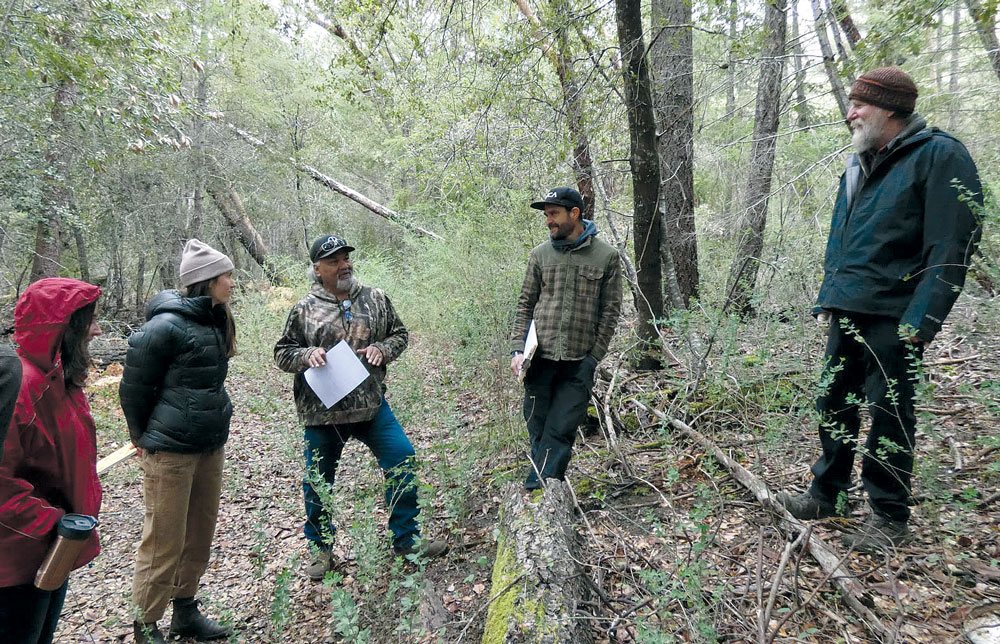
To create solutions, we must overcome the pervasive disconnection that lies at the heart of our crisis: between individuals, between people and nature, and between nature itself. In short, we need to re-connect. As we watch what we have known to be normal—livelihoods, seasonal cycles, a common sense of security—unravel, we must come together and work collaboratively toward the common goals of ecological regeneration and a life-giving economy with good jobs that help restore our connection to nature. This place of reconnection is where our story begins.
Northern Mendocino County (California) has experienced a lot of upheaval in recent years: climate change impacts in the form of catastrophic wildfires and an increasingly unpredictable seasonal cycle that brings historic storms and historic droughts on top of each other. The local economy has been destabilized by shifts in the traditional pillars of forestry, fishing, ranching, farming, and cannabis, as well as by the global COVID crisis.
In the face of such challenges, in November 2021, residents of Northern Mendocino County convened in Leggett, with representation from Bell Springs, Leggett, and Piercy, as well as the Tenmile Creek watershed, which includes the community of Laytonville. An energizing meeting of roughly fifty locals gave voice to the powerful desire and demand for local jobs, regional representation, and community collaboration for ecological health. The meeting was inspired by the $4.9 million Red Mountain/Usal Climate Change Initiative Grant awarded to the Mendocino County Resource Conservation District. This grant has the potential to create local jobs that promote forest health and watershed restoration, while reducing the risk of catastrophic fire. Jobs of this caliber are often outsourced to companies from distant communities, cities, and states. The central questions raised in this meeting were: How do we (the skilled local workers) win the work this grant will fund? And how can we drive the change we need to ensure that our local ecosystems and economy benefit from the work we do?
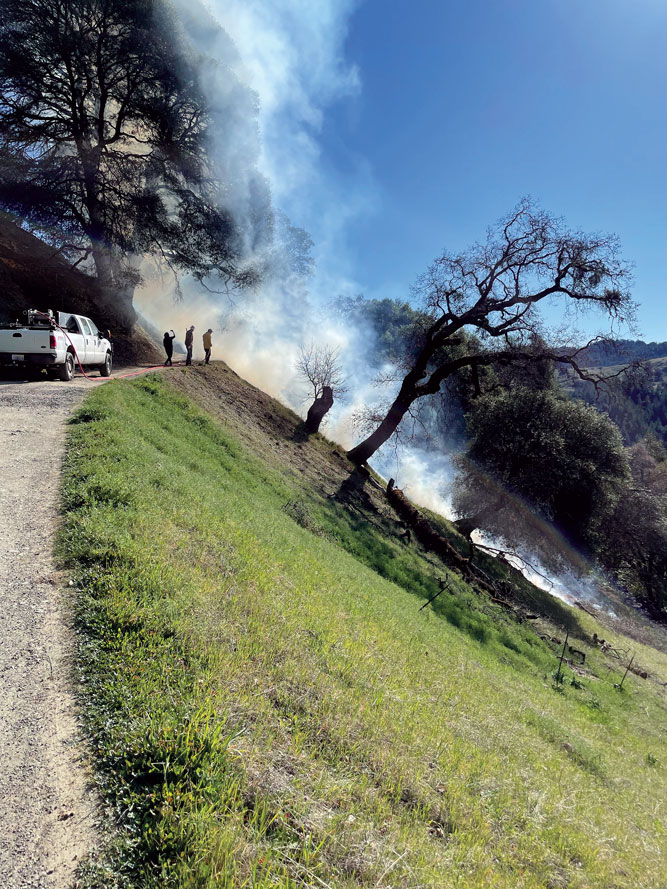
In December, a smaller focus group convened to chew on these questions. What emerged was a clear need for a regional nonprofit to be formed. With a demand for local jobs, the persistent threat of fire, and the urgent need for forest health treatment, the answer is apparent: train and pay local people to work in the woods. So, with a clear vision guiding us, an alliance of regions, communities, and individuals was born: the Northern).
The mission of NM-ERA is to foster fire resilience and responsible land care in our communities by acquiring and administering grants for projects that employ local workers and contractors to do the on-the-ground work of restoring our forests, grasslands, and economy. We are focused on research and development of methods to use forest products in sustainable ways that cycle nutrients and create closed-loop systems. It is our goal to address the climate crisis and ecological restoration of our region throughout all our work. Our organization is divided into five committees: Grants, Education, Workforce, Outreach, and Adaptive Strategies, each acting upon the goals of NM-ERA.
The Grants committee is the cornerstone of NM-ERA, as we make every effort to fund our mission, visions, and goals. As a recently sponsored group of Trees Foundation, we are actively pursuing grants to develop a local workforce training center, to plan educational programs, fund tool trailers, and help sponsor the extensive forest health work needed in our region.
The Education Committee is committed to providing education programs to the public (students, landowners, community members) regarding forest health, fire prevention, and ecosystem regeneration. This includes two avenues of educational offerings. First, the Education Committee is focused on developing a career technical education program for Laytonville and Leggett High Schools to empower local youth to develop careers in forest health. Second, the Education Committee is working alongside the Workforce Committee to develop comprehensive forest health and fire-prevention training programs to support our community as we steward our vast mountainous region.
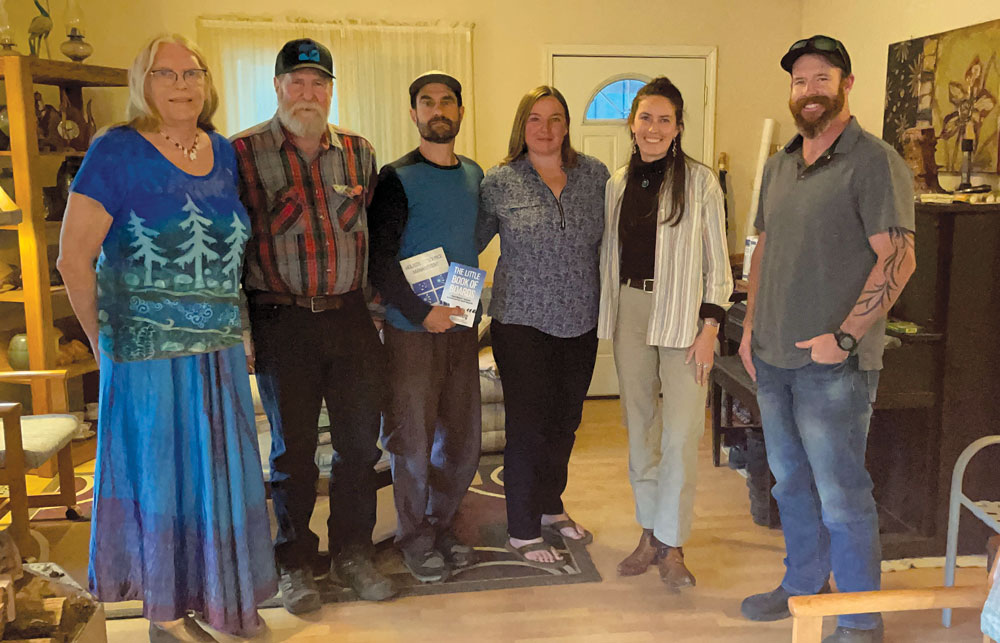
The Workforce Committee is exploring the potential of partnering with a local contractor and bidding on the work packages available through the Red Mountain/Usal Grant. With the goal of creating local jobs that employ local workers to perform regenerative landscape-based labor, the Workforce Committee is also working alongside the Education Committee to develop a regional workforce training center and training program.
The Outreach Committee is working on connecting with our neighbors, building our network of support, and creating a local database of landowners who are interested in forest health treatments, along with individuals who are interested in jobs carrying out forest health prescriptions. Through our newly established website (nm-era.org), there are two questionnaires available, a forest health questionnaire and a workforce questionnaire.
In the coming months (April–June) we will be co-hosting a series of six field trips and workshops with the Eel River Recovery Project (ERRP) to offer further education and community engagement. The topics of these events include biomass cycling (biochar and hugelkultur), community organizing at a watershed scale, forest health prescription, fire prevention, and grassland restoration. This series of events is funded by Trees Foundation’s Cereus Grant. Dates and details can be found on the NM-ERA and ERRP websites and Facebook pages.
As an alliance, we hope to function as a bridge of unification between different regions and entities within our Northern Mendocino and Southern Humboldt community, to fund local projects that regenerate our ecosystem health and function. It is within our local and regional networks that we hold the agency to take action and cultivate change. We will not solve the climate crisis by waiting for someone else to find the answers, or by focusing on individual solutions. We must come together and work toward a shared vision with many individuals and tool kits at the table. With utmost respect for the traditional caretakers of the lands we live on, we hope to learn from local Indigenous elders about land care, good fire, and traditional ecological knowledge.
We are in unprecedented times with changing economies, threats of fire, and tremendous forest health work to be done. We are in exciting times that are facilitating change and presenting a new way forward. NM-ERA hopes to be a catalyst for the regenerative economy in our region. Our current and coming times are bringing forward the story of collaboration, interconnectedness, and community. We look forward to seeing you in the field and working together to restore the economic and ecological health of our area, and to build community resilience.
We are all a part of the solution: all working synergistically to build a network of individuals, organizations, and communities, united by shared goals. This is no easy task, but it is a necessary one for our rural mountain communities to not only survive but thrive in our changing world.
It is our hope that the energy of NM-ERA pulsates through our local community, cultivating a network of land owners, practitioners, workers, visionaries, and stewards to rise to the occasion of our current times. The time is now.
For more information: nw-era.org or facebook.com/groups/nmera
